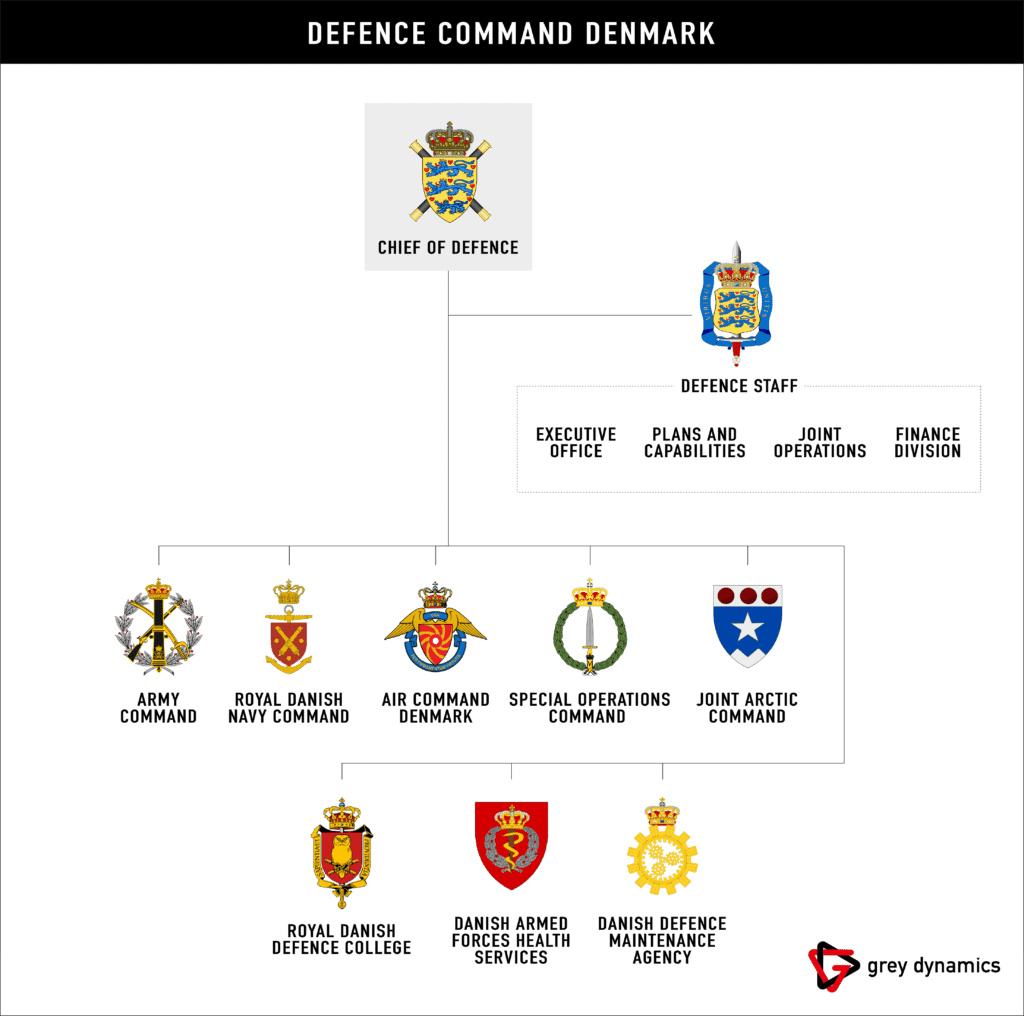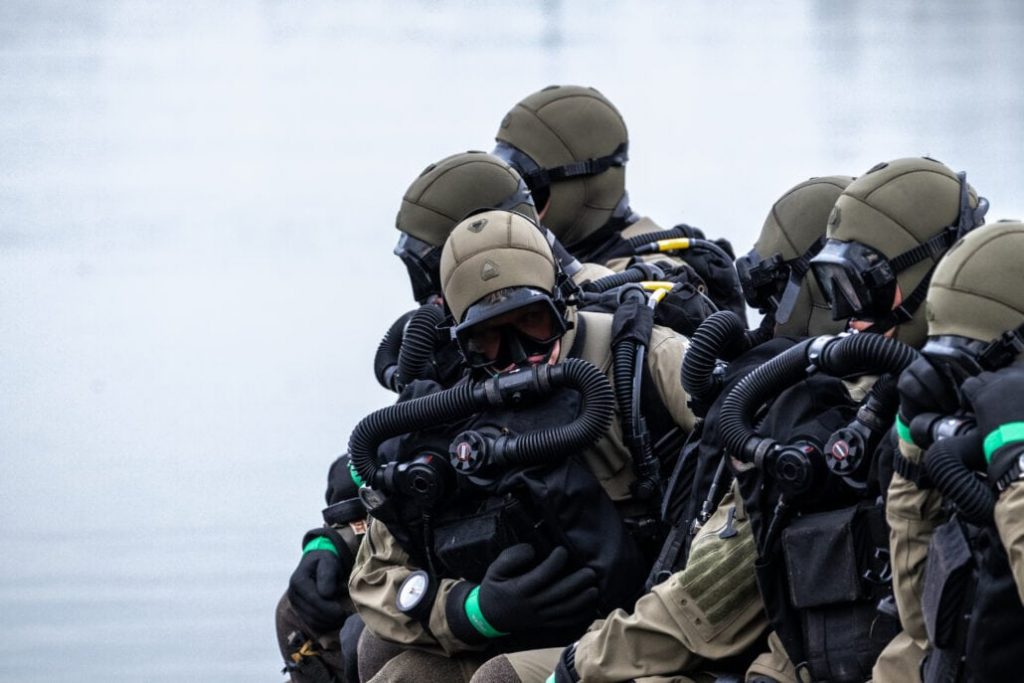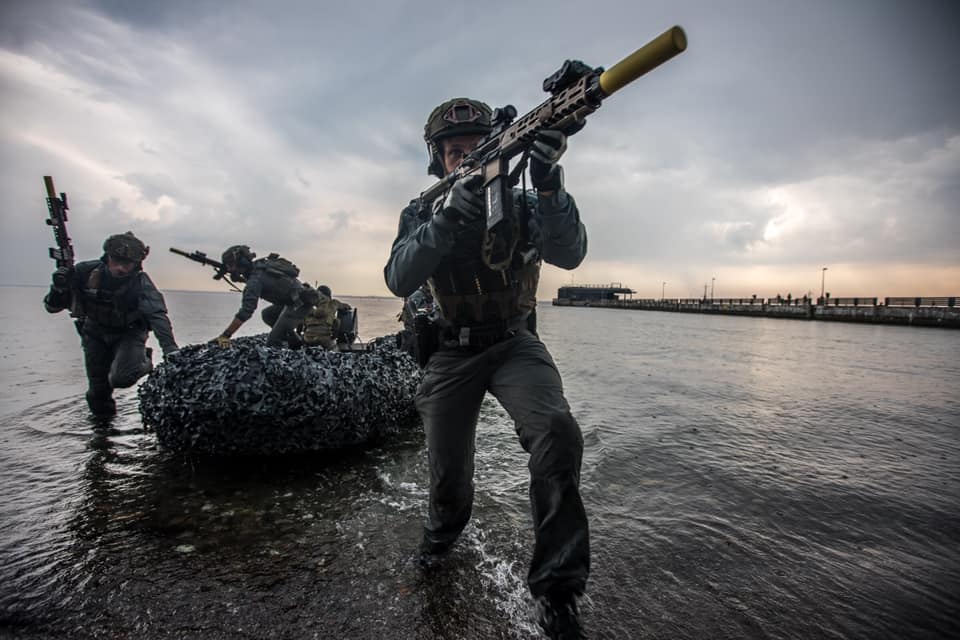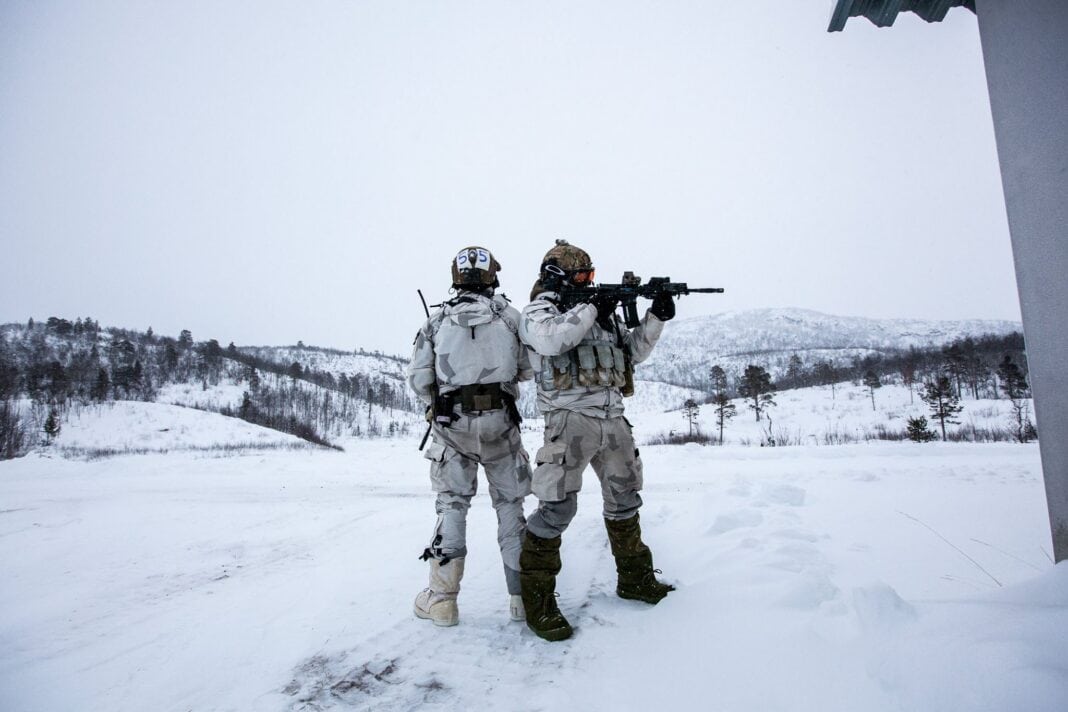The Danish Frogmen Corps (Danish: Frømandskorpset – FKP) is a Special Forces Unit of the Danish Defence Command. Based in Kongsøre, the unit focuses on Special Maritime operations. However, the unit also undertakes airborne and land operations as required.
The unit is highly driven by its primary objective of special maritime reconnaissance (source). As part of this mission, the unit prides itself on “strong professional dedication, loyalty, and openness” (source). Interviews with Frogmen show that the unit prides itself on its “innovative, deliberative and non-hierarchical culture where teams strive to maximise operational effectiveness” (source).
1. History
The Royal Navy established the Frogmen in 1957, initially with inspiration from the British Special Boat Service (source). Originally, the unit was part of the Navy Diving School, though later reported directly to the Navy’s Operational Command Chief.
In the unit’s early years, it established itself as a formidable force. The unit quickly gained a reputation for its advanced reconnaissance skills, which proved incredibly useful during the Cold War. During this time, the Frogmen would regularly perform Intelligence-gathering tasks to support the broader Danish Defence effort (source).

The Royal Navy approved the unit’s emblem on the 19th of April 1982. The emblem depicts a knife which is carried by Frogmen Corps (source).
2. Organisation
The Frogmen sit underneath the Special Operations Command (SOK) of the Danish Defence Command. The Frogmen were transferred to the command of the SOK in 2015, having previously been a unit of the Royal Navy.

3. Tactics, Techniques, and Procedures (TTP)
3.1. Selection
Prospective Frogmen must complete a gruelling selection process and initial training before being indoctrinated into the unit’s ranks.
As part of the initial training, which runs for ten months, candidates complete a large amount of underwater training. This is to prepare the future Frogmen for the special reconnaissance and underwater combat tasks common for Frogmen (source). Such training includes long-term oxygen diving, deep water diving, and diving with weight. During the process, candidates can be cut from the programme if they are not meeting the required standards of a Danish Frogman. The training includes, but is not limited to (source):
- Orienteering
- Military communication
- Close-range combat skills
- Combat swimming and diving
- Patrolling
As a result of such rigorous selection and training, it is exceptionally challenging to become a Frogman. Up to 600 military personnel apply to become Frogmen every year, however, there have only been a total of 400 candidates selected to be Frogmen in the unit’s history (source). This, therefore, makes the Danish Frogmen Corps one of the most selective and elite Special Operations forces in the world.
In late 2021, the Danish Defence Command announced that they would not be running the selection and training course for new Frogmen in 2022. The head of the SOK, Major General Peter Boysen, stated that the force had already fulfilled its recruitment requirement for the year due to internal hiring (source).

3.2. Training
The Frogmen undergo significant ongoing training once they are selected to join the force. This training aims to develop and maintain the diving standards that Frogmen require. Similarly, additional training is provided to allow Frogmen to further specialise in specific functions, such as sniping or communications (source).
4. Equipment
Standard issue equipment is consistent across all Danish Special Forces units (source). This can include:
- Diemaco C7 OR C8
- HK USP
- HK MP5
- HK G3/G41
- Remington 870
- Benelli M1014
- Knight’s Armament SR-25
- Sako TRG-42
However, owing to their specialised maritime operations, the Frogmen also have access to the KH P11, a specialised underwater pistol, which boasts up to a 15-metre range.

5. Notable Operations
Owing to the nature of the secretive operations of the unit, there is little publicly available information on the unit’s exact missions. A large amount of the unit’s work occurs domestically, owing to Denmark’s 4,500 miles of coastline. However, the Frogmen also undertake a large amount of international work (source):
5.1. Iraq
Danish Frogmen were deployed as part of Combined Joint Task Force 7, a US military formation formed in 2003 as part of the War on Terror. As part of this deployment, the Frogmen formed part of a training force that helped with policing and training local security forces (source). The Frogmen would later use this training experience to train Kenyan Defence Forces on maritime defence.
5.2. Afghanistan
Danish Frogmen were deployed to Afghanistan as part of the allied Task Force K-Bar – a coalition of multiple Special Forces comprised of almost 3,000 international troops. The force operated from October 2001 to April 2002, with over 75 missions in the region (source). The Frogmen served alongside the Jaeger Corps in the region (source).
5.3 Syria
The Frogmen, along with members of the Jaeger Corps, deployed to Syria in 2017. The force, comprised of 60 members of both Special Operations units, was one of the largest Special Operations deployments in Danish military history (source).
5.4 Modern Operations
Most recently, in late 2021, Frogmen deployed off the West African coast successfully infiltrated a pirate vessel. Owing to the highly skilled operators, the unit was able to apprehend the pirates successfully whilst sustaining no casualties (source).
Denmark is a NATO member, and as such, the Frogmen and the wider Danish Defence Command take part in international joint readiness exercises with other Special Operations forces. This includes the Green Berets, Air Commandos, and Navy SEALs (source).
6. Summary
The Danish Frogmen are a highly specialised and capable Special Operations Unit which are exceptionally skilled in maritime operations. As a result of the unit’s contributions to operations in Afghanistan, the Frogmen received the Presidential Unit Citation.

